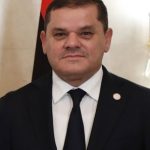Politics
Libya Politics
This page explores Libya’s political structure incorporating real-time RSS feed news and videos. By harnessing the power of RSS feeds, visitors can stay informed about the latest developments in Libya’s politics as they happen. The dynamic nature of these feeds ensures that users receive up-to-the-minute updates on political events, policy changes, and significant milestones, enabling them to stay abreast of the ever-evolving political scene.

Abdulhamid Al-Dabaiba
Prime Minister of Libya
Incumbent
Assumed office
15 March 2021
Image credit
The political structure of Libya has undergone significant challenges and changes in recent years. As of my knowledge cutoff in September 2021, Libya was considered a transitional and divided country with multiple competing factions and governing bodies.
Following the ousting of longtime dictator Muammar Gaddafi in 2011, Libya entered a period of political instability. The country has been marked by the absence of a fully functioning central government, with power fragmented among various armed groups and rival administrations.
At that time, Libya had two main competing entities claiming authority: the internationally recognized Government of National Accord (GNA) based in Tripoli and the Tobruk-based House of Representatives (HoR), which had its own parallel government and was supported by the Libyan National Army (LNA) led by General Khalifa Haftar.
The situation in Libya was further complicated by the involvement of external actors supporting different factions, exacerbating the conflict and hindering political reconciliation efforts. The United Nations and other international organizations have been actively engaged in facilitating dialogues and negotiations to resolve the political crisis and achieve a unified government.
Unless other sources are listed, original content is provided by ChatGPT. ChatGPT may produce inaccurate information about people, places, or facts. #Libya #LibyaPolitics #LibyaNews #LibyaNewsToday #LibyaRSSFeed #BlahFace



